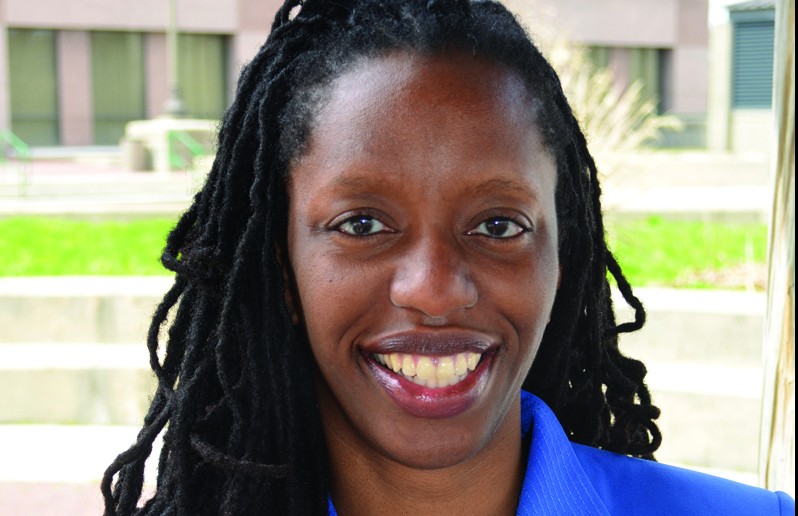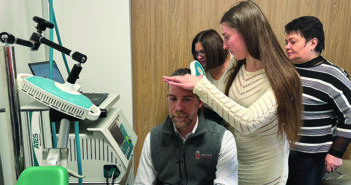An alumna and faculty member takes the helm at the Department of Health.
Nicole Alexander-Scott, MD F’09 MPH’11, assistant professor of pediatrics and medicine, was unanimously approved by the state Senate as the director of the Rhode Island Department of Health in May. Originally from New York, Alexander-Scott completed an infectious disease fellowship in medicine and pediatrics at Brown and then her MPH at the Brown School of Public Health.
Do you remember a particular experience that inspired you to pursue a career in public health?
During the first year of my fellowship in Rhode Island, we were treating a beautiful 4-week-old baby who was subsequently found to be HIV positive and extremely ill. That bothered me because in New York, where I did my med/peds residency, the law was that every pregnant woman should be tested for HIV. If a baby was born and the mother had not been tested, you could automatically test the baby at the time of delivery and start antiretroviral treatment right away if necessary. Because we did not have that law in Rhode Island, that baby missed the opportunity and by 4 weeks of age she became very sick very quickly. I knew this could have been prevented. I worked with Brian Alverson, MD, associate professor of pediatrics, and Rhode Island state Sen. Charles Levesque and Rep. Eileen Naughton to pass legislation so that, today, 100 percent of moms and babies have been tested for HIV at birth in Rhode Island since 2009. This law has made a big difference in the health of our babies and our moms.
Do you think medical students understand and appreciate the importance of public health?
Medical school is one of the best times and opportunities for us to make sure that students understand public health. Becoming a physician is not just about the boards you are studying for or the prescriptions you have to write. Addressing the social and environmental determinants of health are really the keys to being able to make sure your patients are healthy. You can write the prescription but you have to know that patients can read it, and they have transportation to get to the pharmacy, a safe home where they can keep their meds, electricity so they can refrigerate and store their meds, a family support system, adequate education, and adequate food. All of those elements have to be considered for you to be an effective physician.
What kind of relationship would you like to develop between the Medical School, the School of Public Health, and the Rhode Island health department?
We would love to initiate public health research programs so that we could provide opportunities to partner with academic departments that are studying and dealing with the community needs that we want to meet and serve. It would be ideal to develop and conduct our program activities so that faculty and staff can get involved with projects over time and provide longitudinal educational opportunities for interested students. As part of my strategic priorities for the state, I have created a Rhode Island Department of Health Academic Center to strengthen the integration of scholarly activities with public health.
How will you know if you have been successful?
The med/peds in me and the public health mindset with these priorities have made it so I have appreciated that infectious disease is important, but I will have to go beyond that if I want to be an effective public health leader. I know the key will be forging relationships and being a collaborator. The only way we are going to address determinants of health and promote health equity is through partnerships with people who are just as committed.
Making sure our communities, particularly among our underserved and our vulnerable populations, are positively affected is going to be the best way to know if we have been successful.




